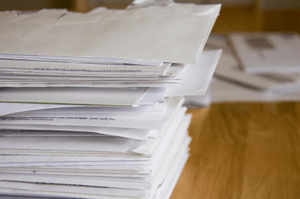Debt Management
 Being in debt is a very delicate situation. You have to make changes, often quickly, to reduce your debt, but these changes also have the potential to worsen your pre-existing problems. Despite this, there are numerous strategies, when followed properly, that you can use to safely reduce your debt.
Being in debt is a very delicate situation. You have to make changes, often quickly, to reduce your debt, but these changes also have the potential to worsen your pre-existing problems. Despite this, there are numerous strategies, when followed properly, that you can use to safely reduce your debt.
How to prioritise your debt
 Before you can formulate a plan to reduce your debt, you must identify which debts should be settled first. While you may think the ones with the largest balance and highest interest rates are the most important, that is not always the case. Priority debts are those which can have a profound impact on your life if you default. While not an exhaustive list, the following debts should always be treated as priority:
Before you can formulate a plan to reduce your debt, you must identify which debts should be settled first. While you may think the ones with the largest balance and highest interest rates are the most important, that is not always the case. Priority debts are those which can have a profound impact on your life if you default. While not an exhaustive list, the following debts should always be treated as priority:
- Any debt secured against your home or apartment.
- Income tax, national insurance contributions, VAT, and council tax arrears.
- Gas and electricity arrears.
- Child maintenance arrears.
- Magistrate court fines.
- County court judgments.
- TV license arrears.
- Hire purchase arrears.
- Telephone arrears.
Steps to reducing your debt
Despite what many for-profit debt management agencies may have led you to believe, getting out of debt is no easy task. Doing so quickly is usually the exception, rather than the rule. That’s not to say it isn’t achievable, but it will take a lot of dedication and discipline.
Create a budget
Creating a budget is an essential tool for successfully tackling your debt problems. Budgets allow you to pinpoint your incomings and outgoings so that you can determine how much you have left over to pay off your debts. You can use the Adviceguide Budget Tool to create a comprehensive household budget.
Reduce your outgoings
Decreasing the amount of money you spend is an important component of debt management. Regrettably, reducing your spending can be a difficult task that may not happen overnight. However, following some of the following strategies should help you curb your spending over time:
- Try whenever possible to buy store brands, as they are often substantially marked down in price from the well-known brands.
- Always be on the lookout for coupons and sales.
- Shopping with lists allows you to avoid making unnecessary, impulse purchases.
- Buying items that you are able to store for a long time in bulk can save you significant money.
- Try to eliminate luxury expenditures, such as cigarettes or eating at fancy restaurants.
- Being eco-friendly is not only good for the environment, it can save you lots of money! For example, driving more gas efficiently, and shortening your showers, can help both the environment and your wallet.
Check benefits
Many times, people in debt are unaware of the unclaimed benefits they are entitled to. To find out if you are missing out on any benefits, use the Gov.UK benefits adviser tool.
Mortgage repayment struggles
The government provides schemes to help mortgage holders who are struggling to make monthly payments. There are also numerous strategies you can use to reduce your mortgage repayments. Read our mortgages page for more information.
Check your credit score
Before you try to cut the cost of your debt, you should determine your credit score. If you have a poor score, this could hamper your ability to receive competitive rates, and even cause outright rejections. It is important to get your credit score repaired as soon as possible, and also avoid applying for an excessive number of credit cards. Even though this may seem like it will improve your chances of receiving lower rates, the excessive applications could also lower your credit score. For more specific information, refer to our credit score section below.
Credit card debt consolidation
When used correctly and with discipline, credit card debt consolidation can be one of the cheapest ways to borrow. Credit card providers are also relatively relaxed with regard to credit scores. For more information, refer to our credit card debt page.
Other alternatives
If you are unable to adequately cut the cost of your debts, there are other more severe alternative measures you can undertake. For more information, refer to the ‘alternatives’ section on our payday loans page.
How credit rating affects debt management
Your credit rating has a huge impact on how you manage your debt. Unfortunately, if you are in debt, it is likely that your credit rating has suffered. A low credit rating will make managing your debt more difficult, but not impossible. Luckily, a basic understanding of credit scores, as well as ways to repair it, should allow you to overcome any credit issues you encounter when in debt.
How credit rating works
Nearly every mortgage and credit provider will use a credit rating to decide whether to grant you a loan, mortgage, or credit card, and at what interest rate and credit limit. The lender determines your credit rating by combining your credit score (a score that is compiled by 3 separate credit reference agencies, that informs your lender about your past history with credit) with a subjective assessment of your suitability for the product you have applied for.
Some of the common factors that go into determining your credit rating are:
- The information on your application form.
- Information on your past behaviour with the lender.
- Your credit score from the 3 separate credit reference agencies.
- Whether you own your home.
- Evidence of financial stability.
- Proximity to those with bad credit.
How a poor credit score affects you
Unfortunately, if you are already in debt, it is likely that your credit score has suffered. This hinders your ability to be accepted by a lender, and makes cutting the cost of your debt much more difficult.
A poor credit score does not only affect your future ability to borrow, but it can also impact your existing rates. Lenders regularly review all of their accounts and periodically perform a ‘rate-for-risk pricing policies.’ This reviews the risks of various groups of policies, and if it determines that your group is higher risk than before, they can increase your policy’s current rate.
How to repair your credit rating
- Stop applying for credit, as excessive applications can reduce your credit score.
- Make sure you are listed on the electoral register. You can use About My Vote to start the registration process.
- Cancel any credit cards that you no longer use.
- Avoid exceeding 30% of your credit limit. Some lenders may view this as excessive debt and have concerns about your ability to repay it.
- Try to settle with any outstanding creditors who you have arrears with. Removing a default from your credit report will provide a huge boost to your credit score.
- If you’ve had a County Court Judgment (CCJ) settled, you should make sure that the settlement is recorded on your credit file. A CCJ can reduce your credit score considerably.
Late payment letters & notices
One of the most challenging aspects of debt management is dealing with late payment letters and notices. While it may be very easy to simply ignore the letters and hope they go away, this will only make matters worse. Fortunately, there are an abundance of resources at your disposal, which should help you properly address any late payment issues that you may encounter.
Arrears
If you are in mortgage arrears or are having problems paying your mortgage, you can refer to our mortgages page for strategies on effectively dealing with your arrears.
County Court Judgments (CCJs)
If you fail to repay money to your creditors, and have either ignored their letters or not reached an agreement, then you may be issued a County Court Claim, which is a summons to court. The CCJ outlines how much is owed, the method of repayment, and the payment deadline. CCJs can have large adverse effects on your credit rating, so you must treat them with great care.
For more information, refer to the Money Advice Service CCJ guide.
What to do if you receive a late payment letter
Receiving a late payment letter is not the end of the world. Your creditor is only likely to take legal action as a last recourse. This does not mean, however, that you can avoid dealing with the letter. This will only lead to additional fees, a reduction in your credit score, and potential court judgments.
Your lender is required to accompany the late payment letter with an information sheet from the Office of Fair Trading, which details your outstanding debt, and how you should address it. Some examples of late payment letters you may receive are:
- Alerting you to a missed payment.
- Telling you that you are in arrears or in default.
- Giving you seven days’ notice of an impending court action.
Once you have read and digested the late payment letter, you should immediately contact your lender to try to work out a feasible arrangement for you to repay your debt. Most creditors will try to be flexible if you are proactive and explain your specific situation.
Legal debt collection practises
For those trying to manage their debt, it is vital to understand what your creditors can and cannot do to collect on your debt. Being in debt is a difficult enough burden, you should never be subject to illegal debt collection methods. The FCA Rules on debt collection prohibit the following debt collection actions:
- Purposefully mimicking court documents.
- Mislead you about your debts and rights.
- Use cryptic language.
- Trespass on your property.
- Contact you at unreasonable hours.
- Hound your for payment if you are not liable.
If you believe your debt collector is breaking any of the FCA rules, then you should report them to the Financial Ombudsman Service.
Get help
We understand that addressing your debt is a daunting task. While it is a very complicated topic, there are many organisations that are staffed with qualified experts in the field of debt management, who are there to help you.
For a list of of such organisations, you should check out our helpful organisations page which contains a list of many free, confidential debt management services.
